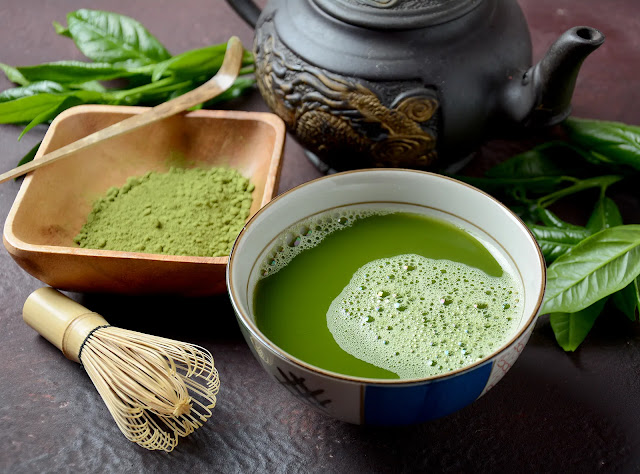Because of their high concentration of vitamins, minerals, antioxidants, and other vital nutrients, superfoods are nutrient-dense foods that provide a number of health advantages. You can prevent chronic diseases and improve your general well-being by include these foods in your diet. Twenty superfoods are listed below, each with comprehensive details and a reference image to help you navigate.
1. Dark Leafy GreensVitamins A, C, E, and K, as well as B vitamins, are abundant in dark leafy greens like Swiss chard, kale, and spinach. In addition, they supply calcium, magnesium, potassium, iron, and carotenoids, all of which support general health and the prevention of disease.
2. Berries
Antioxidants and fiber are abundant in berries including raspberries, blueberries, and strawberries. They are a tasty and nutritious addition to your diet because of their vibrant colors, which signify a high concentration of nutrients that fight disease.
3. Salmon
Omega-3 fatty acids, which are abundant in salmon, enhance brain function, reduce inflammation, and may cut the risk of heart disease and depression. A higher nutrient content is guaranteed when choosing wild-caught salmon.
4. Seeds and Nuts
Nuts and seeds, such as walnuts, chia seeds, flaxseeds, and almonds, are rich in fiber, protein, vitamins, minerals, and good fats. Frequent consumption can help control weight and promote heart health.
Nuts and seeds, such as walnuts, chia seeds, flaxseeds, and almonds, are rich in fiber, protein, vitamins, minerals, and good fats. Frequent consumption can help control weight and promote heart health.
5. Avocados
Avocados are nutrient-dense fruits that are high in fiber, vitamins, minerals, and good monounsaturated fats. They facilitate digestion, promote heart health, and may help keep cholesterol levels within normal ranges.
Avocados are nutrient-dense fruits that are high in fiber, vitamins, minerals, and good monounsaturated fats. They facilitate digestion, promote heart health, and may help keep cholesterol levels within normal ranges.
6. Garlic
Allicin, one of the powerful medicinal components found in garlic, has been demonstrated to strengthen the immune system and lessen the severity of common ailments like the flu and the common cold.
Allicin, one of the powerful medicinal components found in garlic, has been demonstrated to strengthen the immune system and lessen the severity of common ailments like the flu and the common cold.
7. The Herb Turmeric
The main ingredient in turmeric, curcumin, is responsible for the spice's potent anti-inflammatory and antioxidant qualities. Including turmeric in your diet may help reduce the symptoms of inflammatory diseases like arthritis and promote general health.
The main ingredient in turmeric, curcumin, is responsible for the spice's potent anti-inflammatory and antioxidant qualities. Including turmeric in your diet may help reduce the symptoms of inflammatory diseases like arthritis and promote general health.
8. Legume
Plant-based protein, fiber, vitamins, and minerals can be found in abundance in legumes including beans, lentils, and chickpeas. They can promote digestive health, enhance blood sugar regulation, and reduce cholesterol.
Plant-based protein, fiber, vitamins, and minerals can be found in abundance in legumes including beans, lentils, and chickpeas. They can promote digestive health, enhance blood sugar regulation, and reduce cholesterol.
9. Greek Yogurt
Probiotics, protein, calcium, and vitamin D are all abundant in Greek yogurt. Frequent ingestion can help muscle recovery, strengthen bones, and improve digestive health.
Probiotics, protein, calcium, and vitamin D are all abundant in Greek yogurt. Frequent ingestion can help muscle recovery, strengthen bones, and improve digestive health.
10. Quinoa
Quinoa is a complete protein since it contains all nine necessary amino acids and is a gluten-free whole grain. In addition, it contains a lot of fiber, vitamins, and minerals, which promote general health and help control weight.
Quinoa is a complete protein since it contains all nine necessary amino acids and is a gluten-free whole grain. In addition, it contains a lot of fiber, vitamins, and minerals, which promote general health and help control weight.
11. Sweet Potatoes
Beta-carotene, vitamins A and C, and fiber are abundant in sweet potatoes. They encourage good skin, strengthen the immune system, and support eye health.
Beta-carotene, vitamins A and C, and fiber are abundant in sweet potatoes. They encourage good skin, strengthen the immune system, and support eye health.
12. Broccoli
A cruciferous vegetable, broccoli is rich in antioxidants, fiber, and vitamins C and K. Frequent ingestion can lower inflammation and boost the immune system.
A cruciferous vegetable, broccoli is rich in antioxidants, fiber, and vitamins C and K. Frequent ingestion can lower inflammation and boost the immune system.
13. Oats
Whole grains like oats are high in soluble fiber, especially beta-glucan, which can help decrease cholesterol and strengthen the heart. They also supply vital minerals and vitamins.
Whole grains like oats are high in soluble fiber, especially beta-glucan, which can help decrease cholesterol and strengthen the heart. They also supply vital minerals and vitamins.
14. Green Tea
Antioxidants, especially catechins, which are abundant in green tea, can help reduce the risk of heart disease, aid in fat loss, and enhance brain function.
Antioxidants, especially catechins, which are abundant in green tea, can help reduce the risk of heart disease, aid in fat loss, and enhance brain function.
15. Tomato
Vitamins A and C, potassium, and the antioxidant lycopene—which has been associated with a lower risk of cancer and heart disease—are all abundant in tomatoes. They may guard against sun damage and promote the health of the skin.
Vitamins A and C, potassium, and the antioxidant lycopene—which has been associated with a lower risk of cancer and heart disease—are all abundant in tomatoes. They may guard against sun damage and promote the health of the skin.
16. Oranges
Vitamin C, which boosts immunity and can enhance the body's stress response, is abundant in oranges. Additionally, they include magnesium, B vitamins, and flavonoids, all of which support general health.
Vitamin C, which boosts immunity and can enhance the body's stress response, is abundant in oranges. Additionally, they include magnesium, B vitamins, and flavonoids, all of which support general health.
17. Eggs
Eggs are incredibly nutrient-dense, offering antioxidants, vitamins, minerals, and high-quality protein. They promote the preservation of muscles, cognitive function, and eye health.
Eggs are incredibly nutrient-dense, offering antioxidants, vitamins, minerals, and high-quality protein. They promote the preservation of muscles, cognitive function, and eye health.
18. Pomegranates
Pomegranates are high in fiber, vitamins C and K, and antioxidants. They may help lower the risk of chronic diseases and have anti-inflammatory properties.
Pomegranates are high in fiber, vitamins C and K, and antioxidants. They may help lower the risk of chronic diseases and have anti-inflammatory properties.
19. A Hint of Cinnamon
One spice that has strong antioxidant qualities is cinnamon. It contains anti-inflammatory properties and can help lower blood sugar levels and heart disease risk factors.
One spice that has strong antioxidant qualities is cinnamon. It contains anti-inflammatory properties and can help lower blood sugar levels and heart disease risk factors.
20. Dark Chocolate
High-cocoa content dark chocolate is full of antioxidants, especially flavonoids, which can lower inflammation, strengthen the heart, and improve brain function.
High-cocoa content dark chocolate is full of antioxidants, especially flavonoids, which can lower inflammation, strengthen the heart, and improve brain function.
There are several health advantages to including these superfoods in your diet. To get optimum health, keep in mind to include them in a varied and balanced diet.
In Conclusion
One natural method to improve your general health and well-being is to include superfoods in your diet. The vital vitamins, minerals, antioxidants, and healthy fats included in these nutrient-dense meals support a number of body processes, including heart health, immune system support, and brain health. But you can't get all the nutrients you need from a single food. The secret to reaching optimal health is a balanced diet, an active lifestyle, adequate rest, and hydration. You can live a better and more energetic life by choosing wisely and including these 20 superfoods into your meals.
Frequently Asked Questions (FAQs)
1. How does one define a superfood?
Because of their high levels of vitamins, minerals, antioxidants, and healthy fats, superfoods are nutrient-dense meals that offer remarkable health advantages.
2. Can I maintain my health by eating only superfoods?
No, even while superfoods have their advantages, a varied, well-balanced diet is necessary to provide your body with all the nutrients it requires.
3. How much do superfoods cost?
While some superfoods can be expensive, many are accessible and reasonably priced, such as spinach, oats, and lentils. Locally grown and seasonal options might also lower expenses.
4. Do superfoods aid in weight reduction?
Because they are high in fiber, low in calories, and provide critical nutrients, several superfoods, including berries, leafy greens, and nuts, can help you lose weight.
5. Can I consume superfoods on a daily basis?
Indeed! Superfoods are safe to eat on a daily basis and are natural. Just make sure to eat in moderation and with variety to keep your diet balanced.
6. Does consuming too many superfoods have any negative effects?
Yes, eating too many superfoods, like too many almonds or turmeric, can cause weight gain, digestive problems, or drug interactions. Eat in moderation at all times.
Because they are high in fiber, low in calories, and provide critical nutrients, several superfoods, including berries, leafy greens, and nuts, can help you lose weight.
5. Can I consume superfoods on a daily basis?
Indeed! Superfoods are safe to eat on a daily basis and are natural. Just make sure to eat in moderation and with variety to keep your diet balanced.
6. Does consuming too many superfoods have any negative effects?
Yes, eating too many superfoods, like too many almonds or turmeric, can cause weight gain, digestive problems, or drug interactions. Eat in moderation at all times.
7. Do kids benefit from superfoods?
Of course! Fruits, yogurt, and eggs are examples of superfoods that can supply vital nutrients for a child's development.
8. How can I incorporate superfoods into my diet with ease?
They can be cooked into your meals, added to salads, blended into smoothies, or mixed into yogurt. Little adjustments made consistently can have a significant impact!
Of course! Fruits, yogurt, and eggs are examples of superfoods that can supply vital nutrients for a child's development.
8. How can I incorporate superfoods into my diet with ease?
They can be cooked into your meals, added to salads, blended into smoothies, or mixed into yogurt. Little adjustments made consistently can have a significant impact!






















Post a Comment